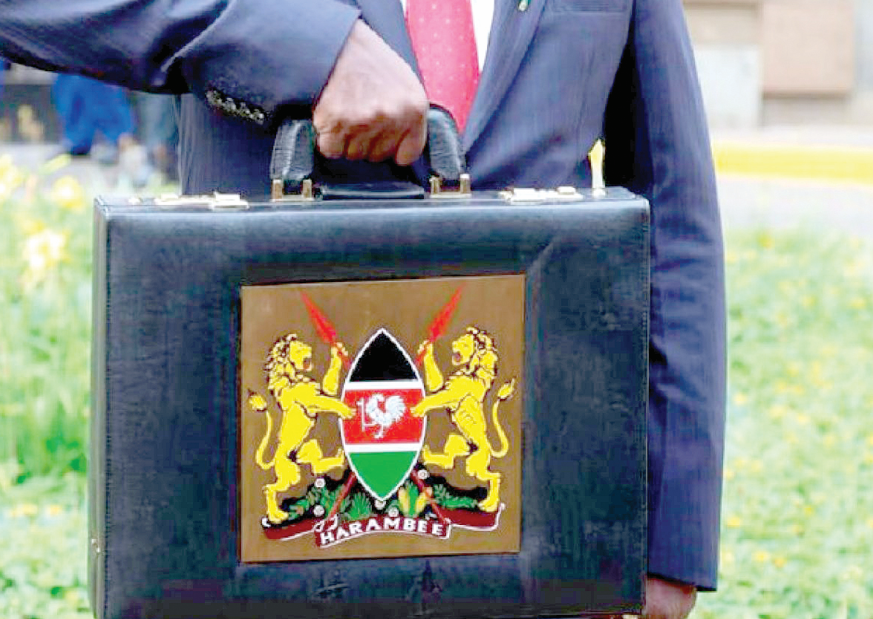Content creators raise concern over VAT policy

Content creation is more than just vibes in Kenya— it is the hustle, generating revenue for youths and keeping them busy.
Its significant contribution to the country’s economic growth has even received a boost with President William Ruto promising a digital revolution. However, new charges such as value-added tax (VAT) on services are making online survival harder.
This has made young creators wonder, whether the government is building a digital economy or just taxing it to extinction?
Platforms such as OpenAI, Canva Pro with Magic Design, Adobe Firefly, Descript, and Runway ML have become standard parts of many creative workflows. These tools allow small teams or solo creators to punch above their weight, producing polished content that can compete on global platforms.
OpenAI, in particular, hasPlatforms such as OpenAI, Canva Pro with Magic Design, Adobe Firefly, Descript, and Runway ML have become standard parts of many creative workflows.
These tools allow small teams or solo creators to punch above their weight, producing polished content that can compete on global platforms. Notified its Kenyan users of this change, stating that in compliance with Regulation 3 of the VAT EIDMS framework, they will be required to charge and collect VAT on invoices.
Users are being urged to update their tax details by providing their Kenya Revenue Authority PINs in order to ensure proper documentation and compliance.
This means that a creator who pays USD 20 per month for ChatGPT Plus will now pay approximately Sh3,680 annually instead of Sh3,170, a difference that might seem small in isolation but becomes significant when multiplied across multiple subscriptions.
For Creators juggling Canva Pro, CapCut Pro, Adobe Creative Cloud, and maybe even AI voiceover tools, the VAT additions could translate into thousands of shillings annually.
From editing podcasts using AI noise reducers to generating artwork, drafting captions, or even scripting videos with generative tools, many Kenyan creators now rely heavily on AI platforms to enhance productivity and creativity.
For a Gen Z content economy that moves at lightning speed, which proves that AI is no longer a luxury, it is a necessity.
Mohammed Alby, a content creator with a substantial following on TikTok, Instagram, and YouTube, expressed frustration at the policy shift. “We have to come up with ways of creatively earning income for ourselves in ways that the older generation would never have thought of, only to be slapped with tax. From all the tax changes, ours is the craziest,” he said.
Alby further pointed out that building a content creation career in Kenya is already expensive, with equipment such as cameras and laptops priced far above global averages. He fears that these added financial pressures could deter others from venturing into the space and reduce opportunities for job creation.
Subscription models
However, most of these services operate on subscription models billed in US dollars and often require use of digital payment platforms like PayPal or virtual cards.
As of May 1, 2025, these invoices will now include an additional 16 per cent VAT under Kenya’s VAT E-Invoicing and Digital Management System (EIDMS) Regulations. The policy, in compliance with Regulation 3 of the VAT EIDMS Regulations, mandates that VAT be charged and collected on invoices related to digital services.
While designed to expand Kenya’s tax base, the move has triggered anxiety and concern among digital entrepreneurs and freelancers who already operate on tight margins.
This new tax follows previous regulatory actions, including the replacement of the Digital Services Tax (DST) with a Significant Economic Presence (SEP) tax in December 2024. The SEP imposes a three per cent levy on gross turnover earned by non-resident digital service providers with a substantial user base or revenue generated in Kenya.
Although these policies primarily target international technology firms, they have created ripple effects that impact local users and service providers.
Individuals who use platforms such as Google Workspace, Adobe Creative Suite, or cloud services for their businesses will now incur higher costs due to VAT, potentially forcing many to reconsider their digital strategies.
The effects are particularly significant among the youth, who have invested in building livelihoods through content creation, e-commerce, and freelance services. For them, the VAT policy adds yet another layer of complexity in an already challenging environment where equipment is expensive, access to reliable internet is costly, and payment platforms charge considerable transaction fees.
According to a 2023 report by Kenya Private Sector Alliance (Kepsa), over 1.2 million Kenyans earn income through digital platforms, with a majority of them being under the age of 35. These individuals are not only contributors to the national economy but also represent the future of Kenya’s labour force.
Kevin Maina, an actor and digital creator, echoed similar sentiments. He noted that while the digital space offers immense potential, the lack of institutional support coupled with new tax obligations makes it difficult for creators to thrive.
“It is not worth it when facilitation for creators to grow financially is not upheld. Most creators are a forgotten lot, and the taxes only create a strain,” he said.














